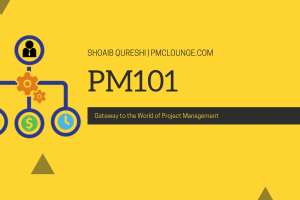
Why do many first timers find it difficult to pass the PMP® certification exam?
In the PMP® examination, one of the most common problems that you can see is first timers failing. That can be quite off-putting and is likely to leave you feeling unsure and uncertain about your chances of succeeding in project management. That should not have to be the case, though: you don’t need to be one of the first-timers who fails. To help you know what particular landmines to avoid stepping on, though, we’ve broken down some of the primary reasons why first-timers fail.
Lack of Practice
Some people believe that by learning words, not concepts, they can succeed. They read content like the PMBOK® page to page a few times and think they are project management experts. This leads to complacency and a lack of practice examination undertaking.
You want to be regularly scoring 80-90% on mock exams – a failure to do that is negligent on your education. First-timers fail because they fail to actually prepare using all of the learning materials available.
The Wrong Practice
Another similar mistake is going and using the wrong kind of content. Many people make the mistake of taking unofficial mock exams, where questions are going to be very different in terminology, difficulty and overall reasoning. If you want to avoid that problem, then you should almost certainly invest in getting the right practice
If it’s not a PMI® educational provider, then it’s not the person that you should be trying to take your test exams with.
Lack of Content
The PMBOK® is your key and primary source for passing your exams. Many first-timers come in empty-handed and just read the PMBOK® hoping to grasp key concepts. The language and the learning curve in this book, though, is insane!
Make sure that you do some basic learning about project management before you pick it up. It will feel like you are trying to decipher an ancient language: take the time to read more than the PMBOK® for greater, more natural understanding of what makes this tick.
Balance
A weird idea that many people come into the exams with is the idea that they have strong and weak points. They then try and work on their strengths to make them really strong, and allow their weaknesses to be left uncovered.
Spend as much time as you can by looking into the other concepts first and foremost. If something is bugging you and stopping you from improving, then you need to take more time to master that side of it. Being as balanced as possible can define success or failure.
Do The Math
A major mistake that you can make is not putting enough importance on the mathematics side of the exam. You don’t need to be a theoretical physicist to make the most of your PMP® exam, but spend as much time as you can by trying to get used to the challenges and that comes from the mathematical side.



